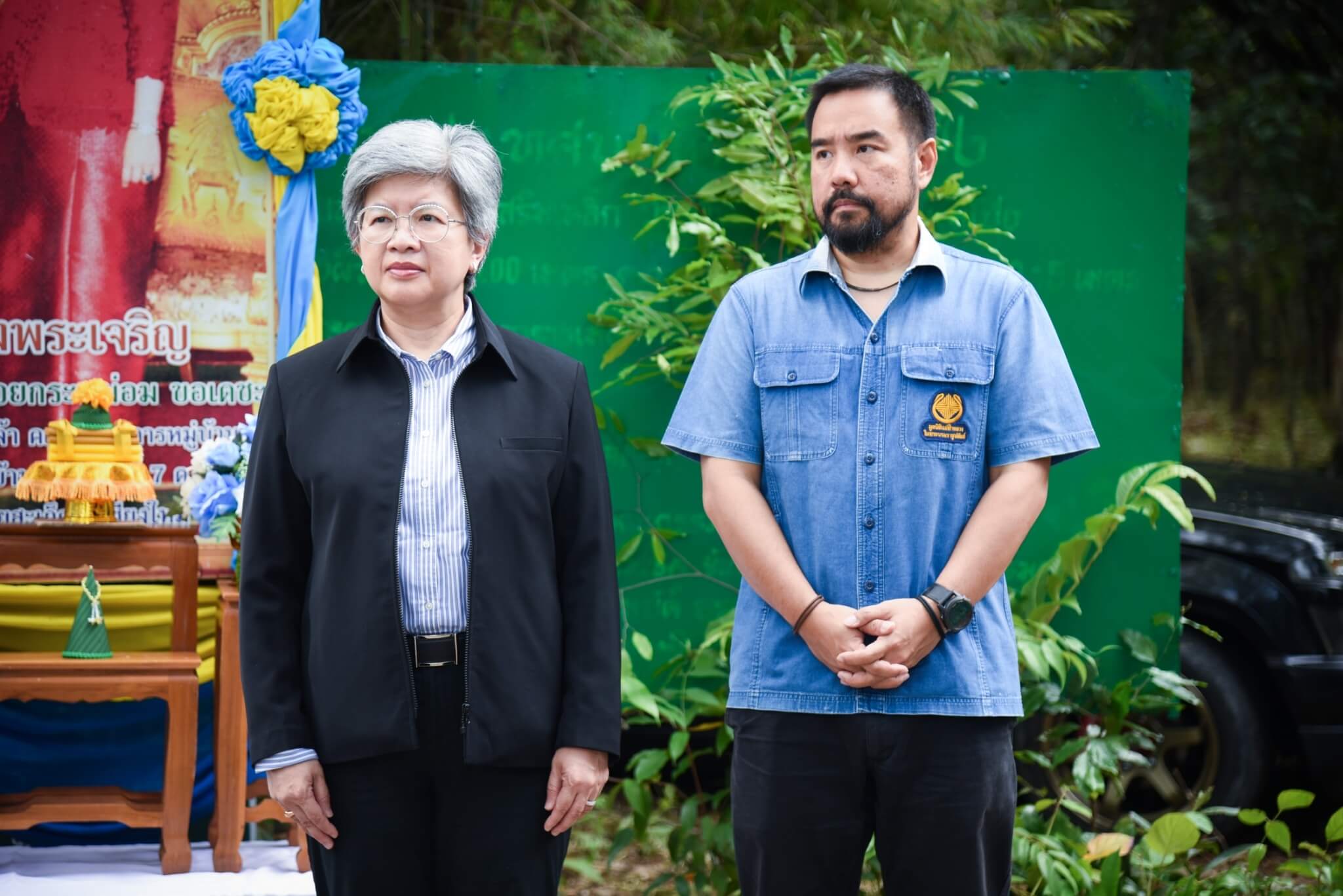Mae Fah Luang Foundation and the Securities and Exchange Commission have jointly initiated the “You Care For Forests, We Care For You” project together with civil society in four provinces to produce carbon credits for sale to the business sector. The project is also expanding to cover 300,000 rai around the country to increase income for local communities and offset climate change.
M.L. Dispanadda Diskul, CEO of Mae Fah Luang Foundation under Royal Patronage, revealed that the “You Care For Forests, We Care For You” project is a pilot project that implements carbon offsetting mechanisms in the forest as part of sustainable development efforts. It was initiated by the Securities and Exchange Commission (SEC) and the Mae Fah Luang Foundation in an effort to merge community development and forest conservation to reduce greenhouse gases emissions in Thailand.
This project has been in operation for 15 months in conjunction with 16 forest communities in Chiang Rai, Chiang Mai, Mae Hong Son and Phayao provinces, covering an area of 19,611 rai. A total of 9,166 villagers have benefited from the project which has received support from various sectors, since it helps to reduce environmental impact, with clear advantages to the communities, the private sector and the country as a whole. It targets communities covered by the Community Forest Act B.E. 2562 so they have an alternative livelihood and a stable lifestyle while protecting the forests. It is expected that a total of 392,220 tons of carbon dioxide equivalent will be produced from 16 community forests in the 20-year period.
“Thailand’s greenhouse gas emission is ranked at 12th in the world, or over 300 million tons per year, which puts the country at greater risk of severe impacts of climate change,” said M.L. Dispanadda. “Furthermore, greenhouse gas is becoming a factor in world trade, so if we do not address the issue quickly, we will definitely suffer the consequences.”
Each community forest that signs up for the program has to pass all standard requirements in order to register for the Thailand Voluntary Emission Reduction Program (T-VER) under the Thailand Greenhouse Gas Management Organization, with independent monitoring units.
“These communities are provided with information on how to protect forests to evaluate the amount of carbon credits that can be exchanged in the future. There is also a fund to support new livelihoods that are initiated by the communities themselves, so that forest conservation contributes to improved well-being. The participating private sector organizations will then contribute to developing human potential, supporting community forest conservation efforts, and receive carbon credits to offset their greenhouse gas emissions.”
The community forest pilot project in four provinces has received the support of seven organizations, namely the Securities and Exchange Commission, Thai Beverage PCL, Intouch Holding Co., Ltd., TMT Steel PCL, Siam Commercial Bank PCL, PricewaterhouseCoopers Co., Ltd., and PTG Energy PCL, who jointly contributed 43 million baht to lay the foundation for the communities over the 6-year period.
Part of the budget will go towards the geographic information system (GIS) and field work, setting up model T-VER plots to evaluate carbon credits, and organizing community training workshops. Another part will go towards a forest conservation fund and a quality of life development fund. Currently, the communities have already formed five new livelihood groups, such as making utensils from leaves, bamboo basketry, organic fertilizers, and a central market for community products.
Since the global community has started using environmental standards as a criteria in conducting world trade, it is estimated that the price of carbon credits will increase over the next 10 years. Mae Fah Luang Foundation has therefore taken its pilot project a step further, putting it into action together with another 33 communities covering an area of 32,500 rai in Chiang Mai, Kamphaeng Phet, Uthai Thani and Krabi provinces from 2021-2022, with plans to expand to 150,000 rai of community forests by 2023. It is estimated that those combined community forests will be able to capture about 2.8 million tons of carbon dioxide equivalent of greenhouse gases, creating an income of 840 million baht for the communities over 20 years.
There are also ongoing efforts to expand forest carbon programs throughout the country in conjunction with various units under the Ministry of Natural Resources and Environment, such as the Department of Forestry, the Department of National Parks, the Department of Marine and Coastal Resources and the Thailand Greenhouse Gas Management Organization.
“The Ministry of Natural Resources and Environment is very invested in this program, and have same viewpoint on the matter. Therefore, we are working not only with the communities but also with the Ministry to improve our field access under the auspices of the Ministry in order to ensure than the carbon credit system is sound and valid.”
M.L. Dispanadda went on to explain that the decisive factor that will lead towards success is the cooperation of all sectors as well as the communities that protect the forests.
“Mike Berners-Lee, an expert in greenhouse gas foot-printing, said that one hour of mobile phone usage per person per day contributes 63 kgs of carbon a year. If you calculate all the mobile phones in the world, and the amount of time used each day, that’s a massive amount of carbon emission. We all play a part in impacting the environment, and we can all participate in solving the problem too.”
Organizations and individuals who wish to support the “You Care For Forests, We Care For You” project are invited to donate 2,500 baht per rai (for the duration of the 6-year program). For further details, contact email: decarbonization@doitung.org
